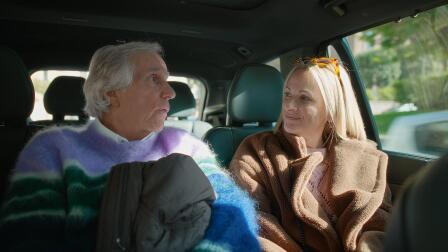Back to Show
American Masters
How Hannah Arendt developed the concept of "the banality of evil"
Hannah Arendt came up with the concept of “the banality of evil” during her coverage of the 1961 trial of Adolf Eichmann. During the trial, Eichmann, one of the main organizers of the Holocaust, insisted that he was only obeying the law and following orders. Arendt said: “There’s simply the reluctance ever to imagine what the other person is experiencing. That is the banality of evil.”
Support Provided By

1:23:55
Learn about Elie Wiesel, Holocaust survivor and Nobel Peace Prize-winning author of Night.

Unlock with PBS Passport
1:52:55
Ahead of his 100th birthday, celebrate the life and career of iconic actor Dick Van Dyke.

Unlock with PBS Passport
1:36:28
Learn about Marlee Matlin, Oscar-winning actress and champion of the Deaf community.

Unlock with PBS Passport
1:22:55
Discover how celebrated cookbook writer Marcella Hazan shaped Italian cuisine in America.

Unlock with PBS Passport
1:23:45
Discover Hannah Arendt, one of the most fearless political writers of modern times.

Unlock with PBS Passport
1:51:14
Trace the life and music of “Society’s Child” folk icon and LGBTQ+ advocate Janis Ian.

Unlock with PBS Passport
1:36:59
Explore the career of cartoonist Art Spiegelman and his award-winning graphic novel Maus.

Unlock with PBS Passport
1:42:06
Take an intimate look into the life and career of screen and stage icon Liza Minnelli.

Unlock with PBS Passport
1:23:25
Learn about jazz artist Hazel Scott, the first Black American to have their own TV show.

52:55
Discover the life of singer Brenda Lee and her musical hits spanning genres and decades.

Unlock with PBS Passport
1:23:57
Explore the story of writer Julia Alvarez, who blazed a trail for a generation of Latino authors.

Unlock with PBS Passport
1:23:35
Explore the story of filmmaker Blake Edwards, known for his comedies like the "Pink Panther" series.











